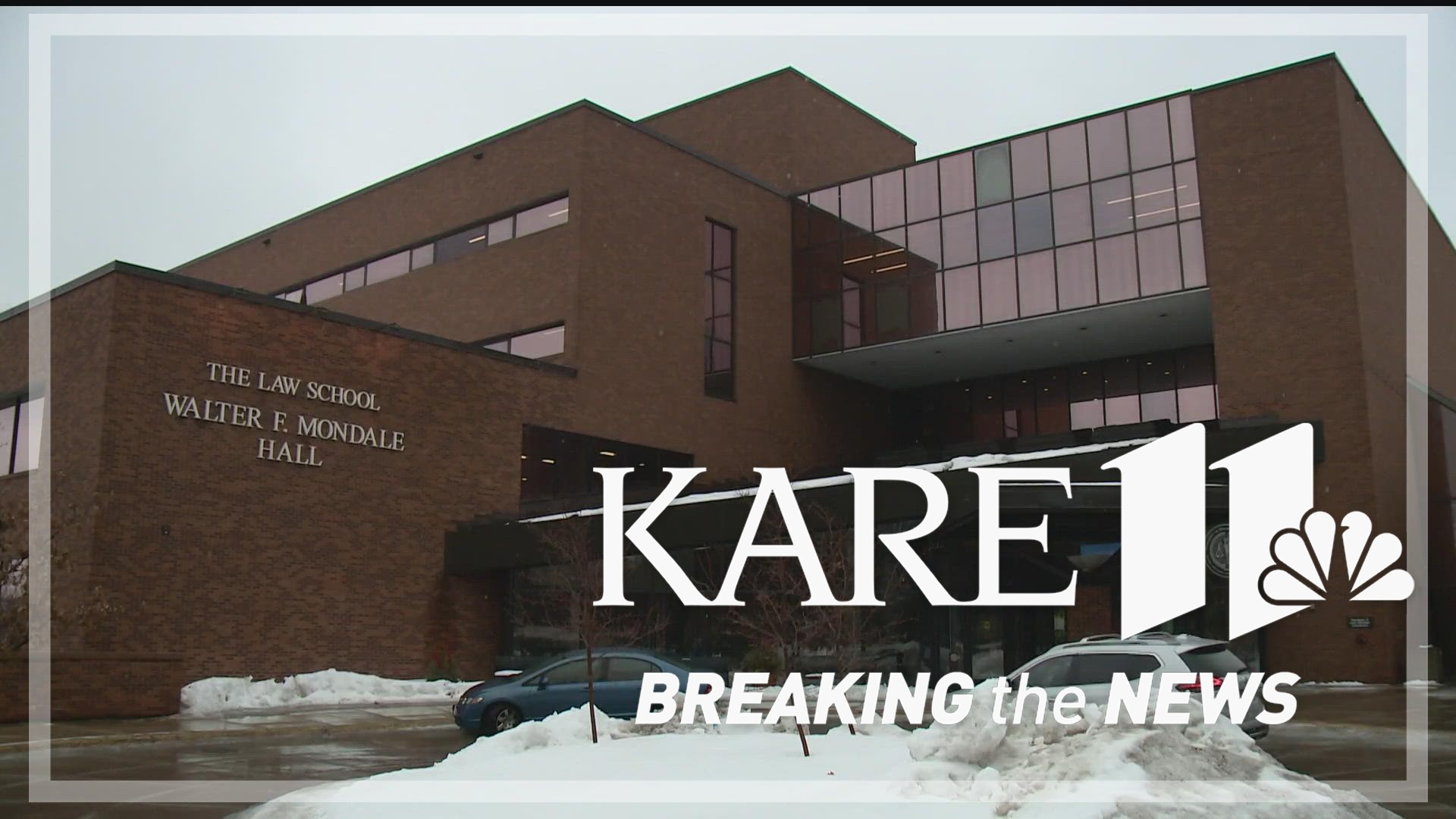MINNEAPOLIS — At a time when gun control legislation remains more politically polarized than ever, and mass shootings continue to unfold across the country, a new University of Minnesota Law School program is helping students work toward gun violence prevention, while also working within current laws.
"This is my dream," said Megan Walsh, the visiting clinical professor of law who launched the Gun Violence Prevention Law Clinic. "Law schools across the country weren't doing this. We are the first ones in the country to use law school experiential education to address gun violence."
Walsh says the students enrolled in the law clinic are learning and working beyond the walls of a classroom.
"They're actively going out and litigating cases, working directly with clients, developing cases themselves and getting that real-life experience," Walsh said.
That includes a partnership with Minnesota Attorney General's Office on several firearms cases, including an ongoing lawsuit against Fleet Farm, which alleges negligence in selling firearms to "straw purchasers," a phrase that refers to situations where someone illegally purchases a gun from someone else.
Others are helping defend against challenges to state gun regulations.
"Cases are coming out every day that are drastically changing the way that gun regulation is considered by courts," Walsh said. "And so it's important for law schools to step up to that."
It's work that Walsh had been doing personally for years as part of the Every Town USA legal team. Before joining the U of M, she helped the families of victims of a mass shooting at Santa Fe High School, in Texas, sue online ammunition retailer, Lucky Gunner, after the gunman purchased ammo from the site despite being underage. The families agreed to a settlement last week.
"Now (Lucky Gunner) is requiring age verification," Walsh said. "That is a really great example of how you can use litigation to change the industry and make sure that things that companies really should be doing anyway, they are now incentivized to do."
A representative with Lucky Gunner calls Walsh's characterization misleading. In a statement about the settlement, the company wrote, "We agreed to continue with the same age verification process we have been using since 2019. We did not agree to change any part of our business as a part of the resolution of this lawsuit."
Kent Erdahl: "Is there anything you want gun owners to know about what this is, and is not?"
Walsh: "I think a lot of people have a gut reaction whenever you're talking about firearms. At the core, we're all talking about safety; we're talking about the things that matter most to us: keeping our family safe, keeping our kids safe. Some people look at that and say, 'We should have firearms out of the equation. Let's get rid of the firearms.' Other people look at that and say, 'No, I want a firearm because that is safety to me.'"
The majority of Americans are somewhere in the middle. They believe that people have an individual right to carry a firearm if they are licensed, if they pass a background check and if they are a lawful citizen, but they don't think that right is unfettered, and that is also what the Supreme Court has said.
"It doesn't have anything to do with taking guns away from someone who wants to hunt or wants to protect themselves; it's about reducing the trauma, the deaths and the injuries that really is a huge cost to society as a whole."
Watch more Breaking The News:
Watch all of the latest stories from Breaking The News in our YouTube playlist:

